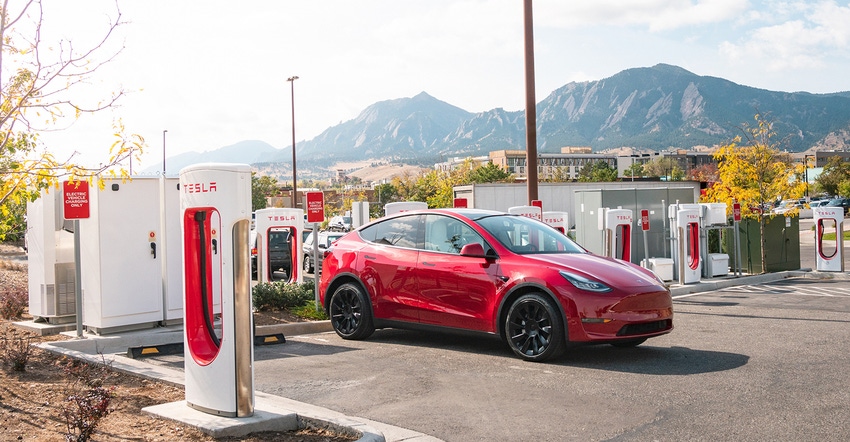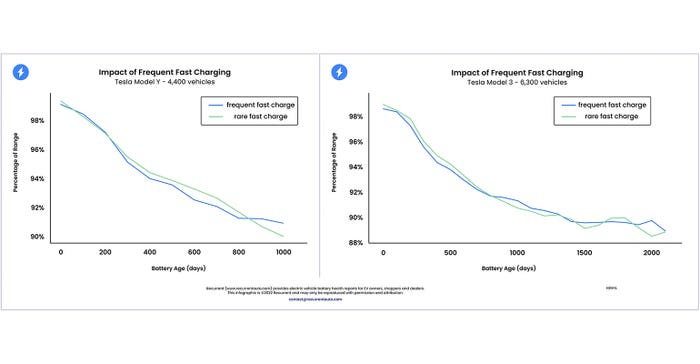Report: Supercharging Doesn’t Degrade Tesla Battery Life
A new study of 12,500+ Tesla EVs concluded there is no statistical difference in range degradation between frequent fast charging and slow charging.

It’s long been believed that the high amount of energy, so quickly deployed, when fast charging an EV must have the side effect of degrading the battery more quickly than would the use of a slow charger. A new study concludes that that isn’t the case after all.
The experts at Recurrent studied fast charging on more than 12,500 Tesla vehicles in the US, comparing cars that fast charge at least 90% of the time with those that fast charge less than 10% of the time. Their results showed no statistically significant difference in range degradation between the two groups of Teslas.
“Initial analysis by the team at Recurrent suggests that the study findings can be applied across Tesla models and other EV manufacturers, although detailed research is being conducted on other popular vehicles that Recurrent supports,” the report said. “In short, the robust thermal, voltage, and battery management systems that EV makers have invested in do protect their batteries from damage with routine fast charger use.”

Confirming Tesla’s claims
The Recurrent study gives further credence to Tesla’s own claims regarding battery degradation over time. In its most recent Impact Report, Tesla stated that it has more than ten years’ worth of data to draw on, and that data shows that “Even after 200,000 miles of usage, our batteries lose just 12% of their capacity on average.”
That report estimates 200,000 miles to be the approximate amount of usage an average vehicle in the US gets before being scrapped; it’s 150,000 miles in Europe, Tesla states. In other words, the car’s life will be over well before the battery’s life will be.
Recurrent and Tesla both warn that there are conditions under which fast charging can indeed damage a battery, and advise avoiding fast charging in extreme heat and to precondition the battery before doing so in extreme cold. Also, try not to fast charge an EV “at very low states or very high states of charge, since battery resistance will be higher,” Recurrent cautions.
About the Author(s)
You May Also Like





